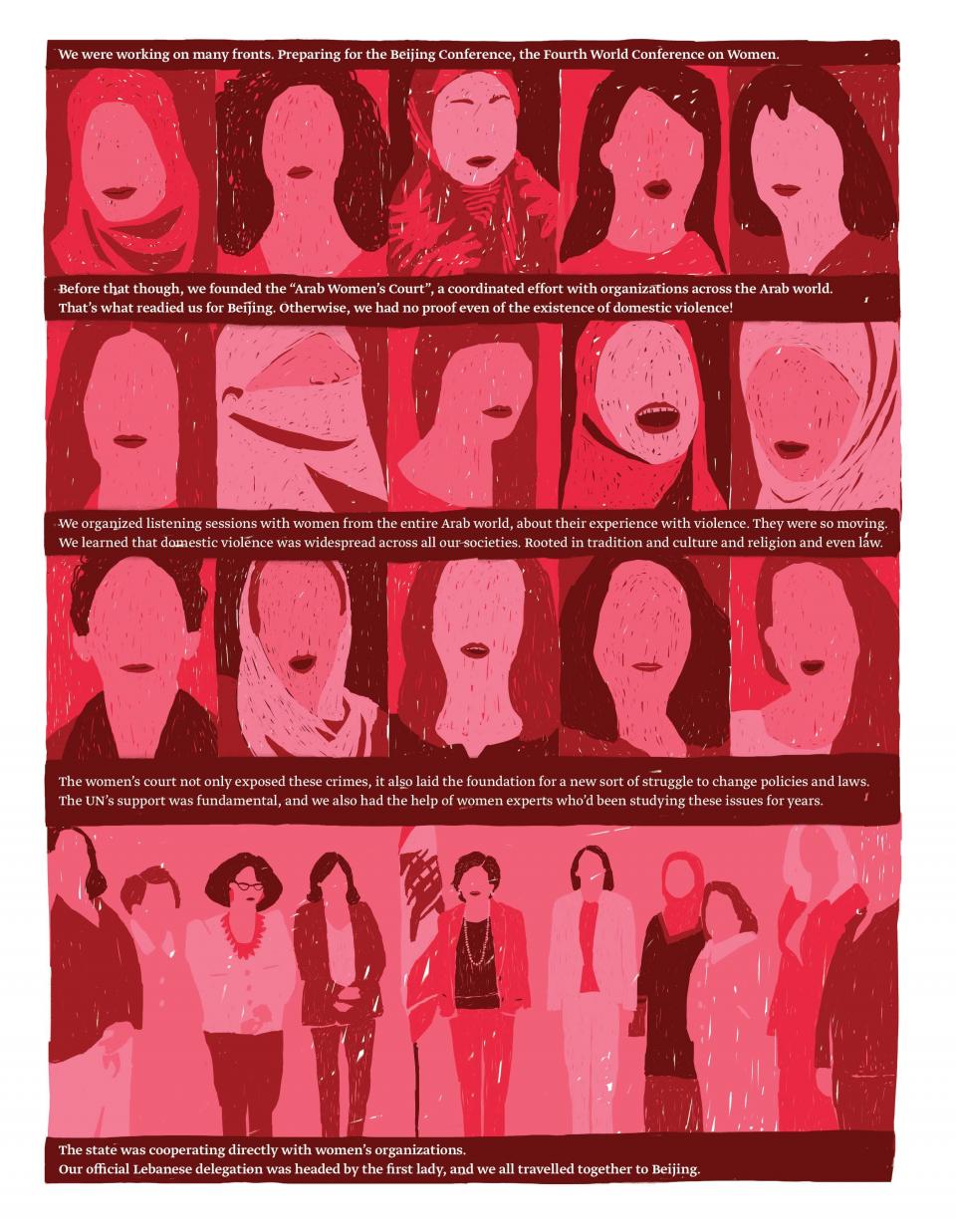Haifa’s Story - 29

Panel 1: “Third wave” feminism in Lebanon began in the early 1990s, during the run-up and preparations for the “Fourth World Conference on Women: Action for Equality, Development, and Peace”, convened by the United Nations in September 1995 in Beijing, China. Activists consider this conference a central event in the development of the Lebanese feminist movement. It gave international legitimacy to women’s causes and helped dismantle the partisan hegemony around feminist issues. As one activist explained, the Beijing conference affirmed that: “Finally, the feminist agenda became legitimized: [it] became part of an international debate, and it was up to us to make the connection between what was decided at the global level and the campaigns we were conducting at the local level.”
Panel 2: The Arab Women's Court was a symbolic court formed by women judges, lawyers, university professors, researchers, writers, artists, parliamentarians, and public figures in the Arab women's movement, in addition to a number of survivors of domestic violence. The members of the Court convened in Beirut from June 28-30, 1995; together, the women represented 14 different Arab countries. The Court heard 33 live testimonies from survivors of violence. This was the first time in the history of the women's movement that a symbolic event was held to condemn violence against women. The Arab Women's Court followed a model implemented in many countries in preparation for the International Women's Court, which was established months later (September 1995) in Beijing, as part of the activities of the International Conference on Women.